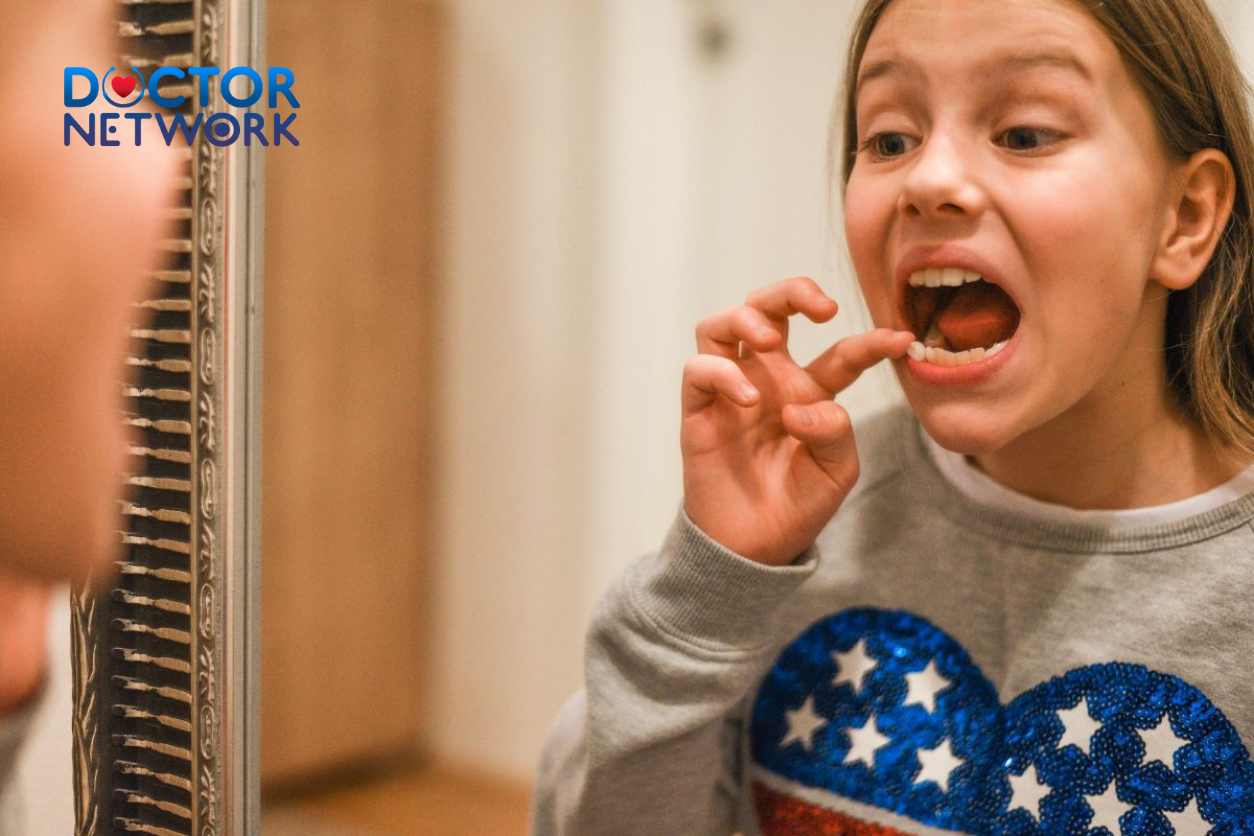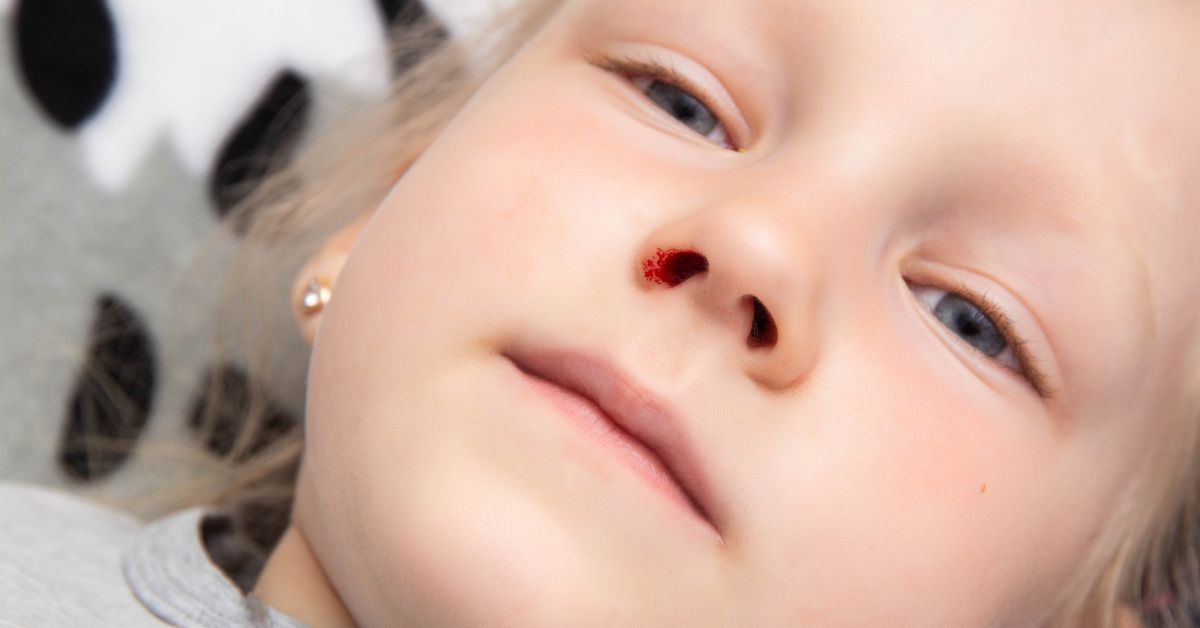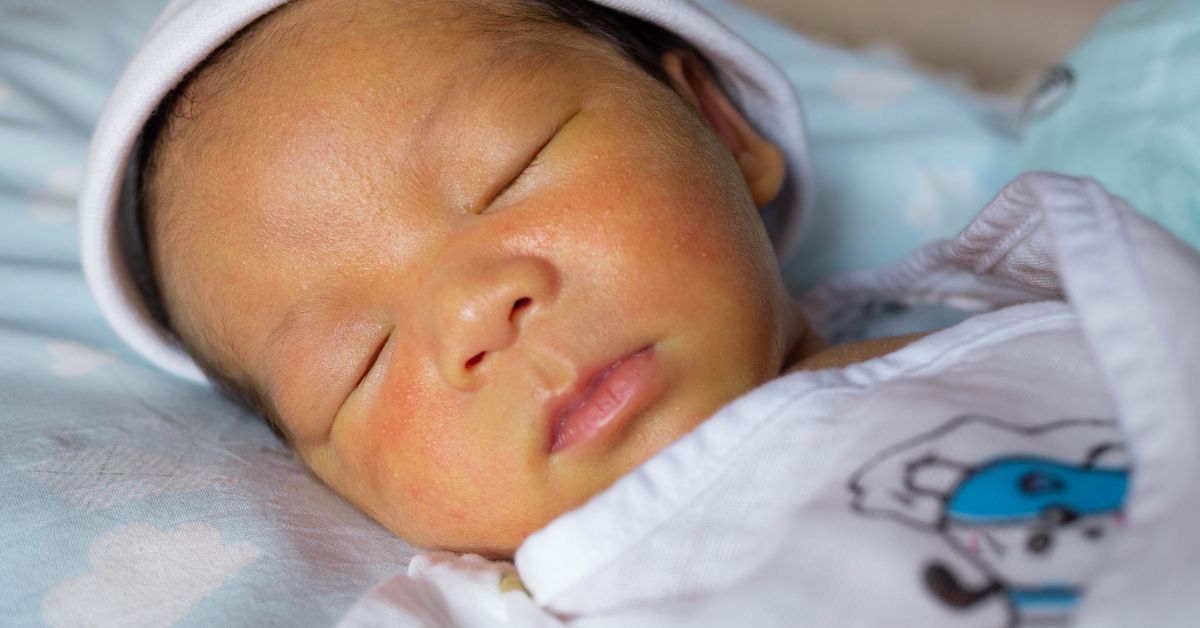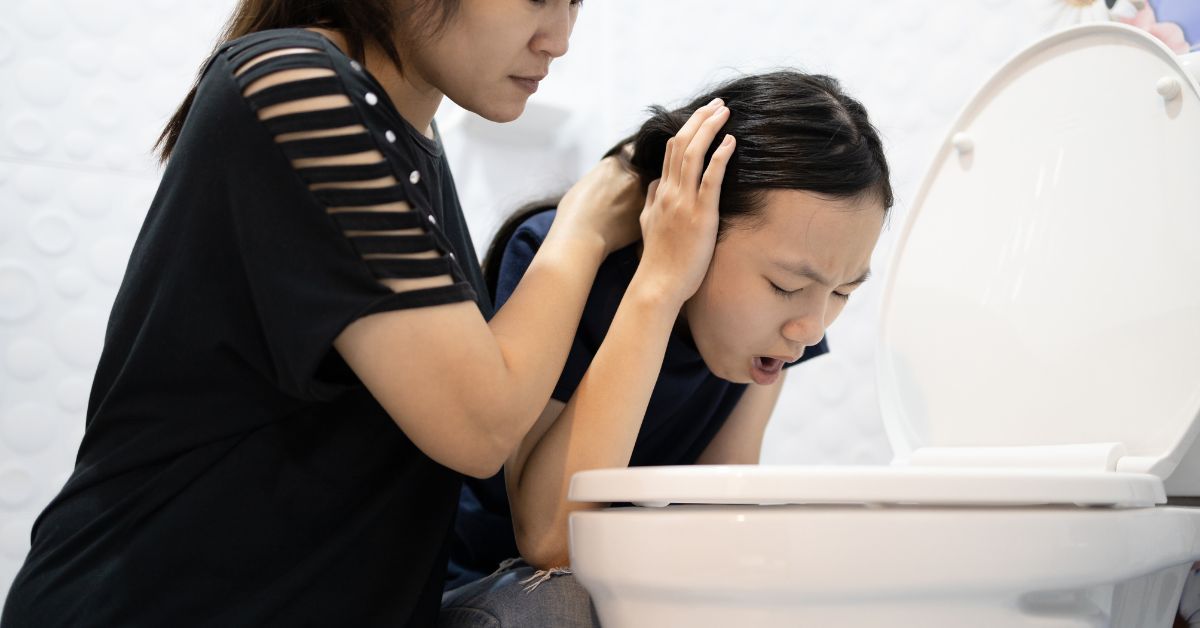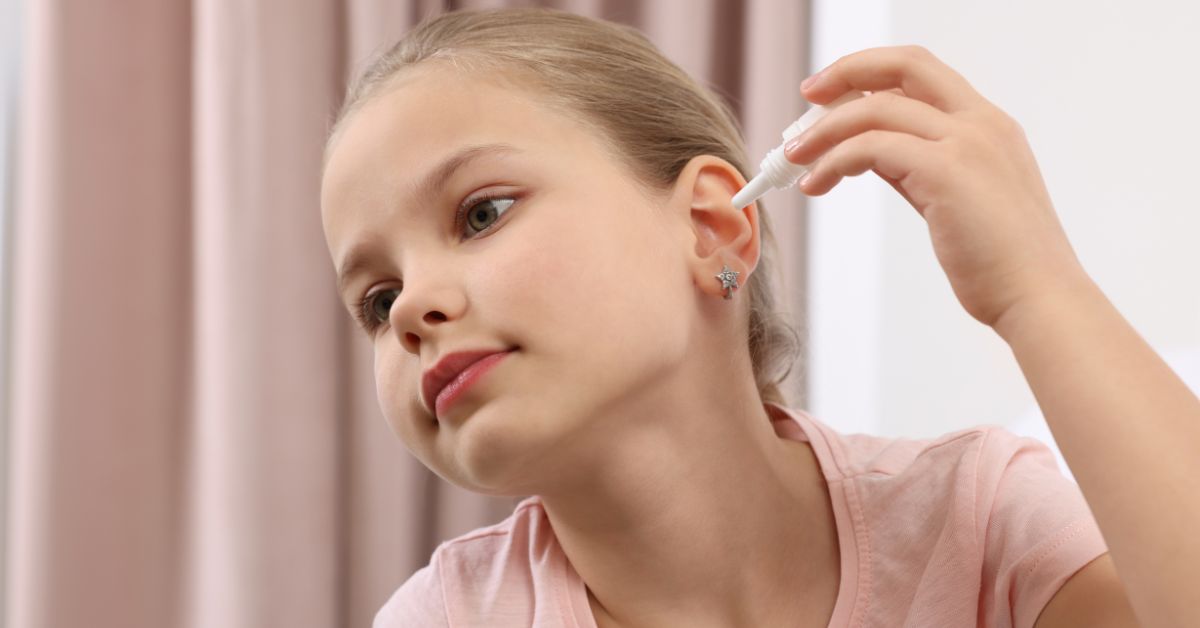Are you concerned about ‘newborns breathing noisily and squirming‘? Don’t panic, as this could be a normal physiological phenomenon in infants. However, it’s also important not to overlook it, as sometimes it may indicate an underlying condition. Let’s explore this issue further to ensure the best care for your baby!
Causes of newborns breathing noisily and squirming
There are several reasons why newborns may exhibit noisy breathing and squirming, ranging from normal physiological reasons to conditions that require attention.
Physiological causes:
Narrow airways: Newborns have narrow airways that can easily become irritated, causing noisy breathing when air passes through.
Mucus in the throat: Newborns are unable to clear mucus from their throats effectively, leading to congestion and noisy breathing.
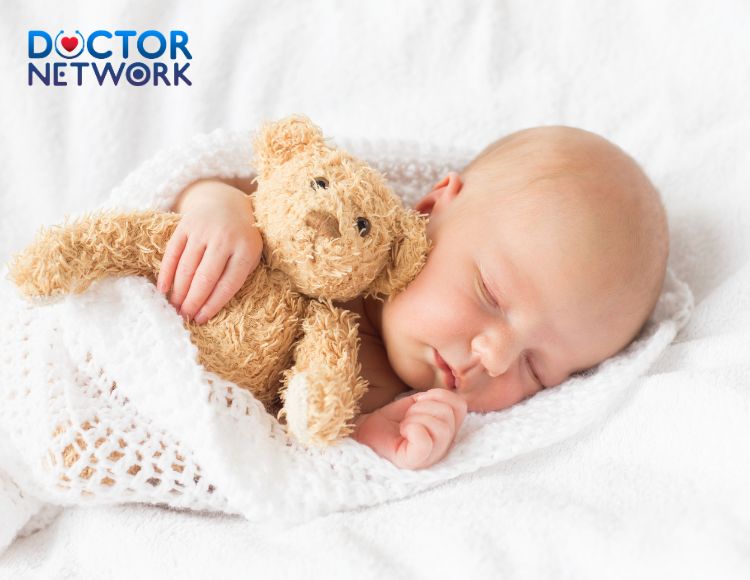
“Wheezing and writhing infant” – mucus in nose and throat
Gastroesophageal reflux: Acid from the stomach may reflux into the esophagus and irritate the airways, causing noisy breathing and discomfort.
Pathological causes:
Pneumonia, bronchiolitis, bronchitis: These are common respiratory infections in newborns that can cause inflammation and swelling of the airways, resulting in noisy breathing.
Infantile asthma: Although rare, newborns can develop asthma, especially if there is a family history of the condition.
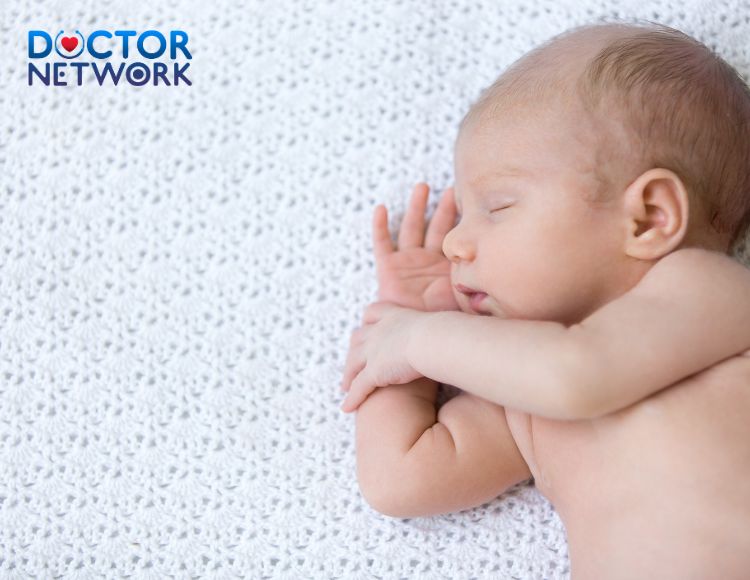
“Wheezing and writhing infant” – asthma
Allergies: Infants can be allergic to substances such as dust, pollen, or animal dander, leading to airway inflammation and noisy breathing.
Other respiratory conditions: Congenital airway abnormalities, tumors in the airway, congenital heart defects, and other conditions can also cause noisy breathing in newborns.
Symptoms and signs to recognize noisy breathing and squirming in newborns
To identify signs of noisy breathing and squirming, observe your baby for:
Noisy breathing: Audible sounds during breathing, more noticeable when the baby is sleeping or feeding. Difficulty breathing: Rapid or labored breathing, chest retractions.
Squirming, fussiness: Frequent squirming, fussiness, especially during feeding or sleeping.
Refusing to feed, poor sleep: Due to discomfort from breathing difficulties. Pay attention if noisy breathing and squirming are accompanied by symptoms such as refusal to feed, poor sleep.
Other symptoms: These may include coughing, runny nose, fever, depending on the underlying cause of the condition.
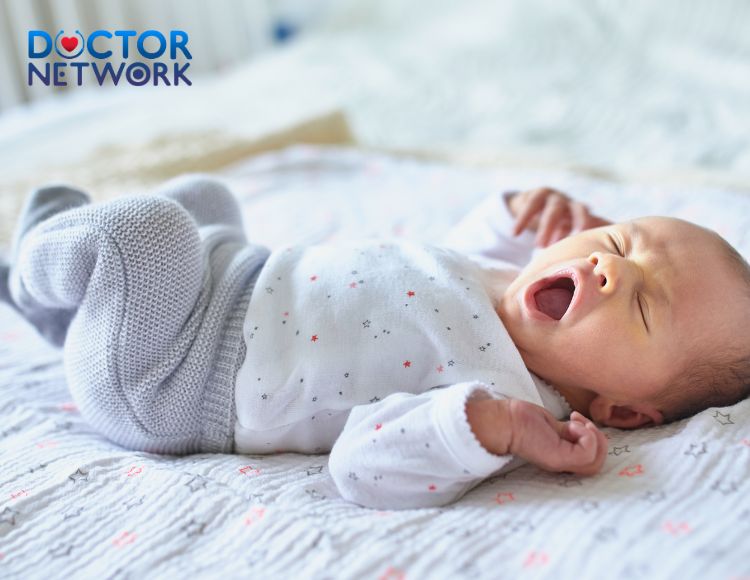
Be careful if your baby “wheezes and squirms” along with symptoms of refusing to feed and poor sleep
When should you take your baby to see a doctor?
Signs that necessitate urgent hospitalization for noisy breathing and squirming in newborns include:
Difficulty breathing, wheezing, or cyanosis (bluish discoloration): Signs of severe oxygen deprivation that require immediate medical attention. Refusal to feed, lethargy, difficult to wake: Could indicate severe infection or other dangerous conditions. Persistent high fever: Prolonged high fever can lead to seizures and other complications. Additionally, take your baby to the doctor if:
Noisy breathing persists for more than a week. Noisy breathing worsens or if your baby shows signs of respiratory distress. Diagnosis and treatment
The doctor will diagnose the cause of noisy breathing and squirming based on:
Clinical examination: Assessing symptoms, listening to the baby’s lungs.
Tests: Blood tests, chest X-rays may be performed to confirm the underlying cause.
Treatment will depend on the cause:
- Physiological causes: Often require no specific treatment other than regular nasal suctioning.
- Respiratory infections: Antibiotics may be prescribed if bacterial infection is suspected.
- Infantile asthma: Medications such as bronchodilators may be used as directed by the doctor.
- Allergies: Avoidance of allergens, antihistamines, or corticosteroids may be prescribed.
Home care for noisy breathing and squirming in newborns
In addition to medical treatment, you can implement home care measures to help manage noisy breathing and squirming:
Nasal hygiene: Use saline nasal drops or suction to clear nasal passages.
Ensure adequate feeding: Breastfeed or provide formula to support immune function.
Keep your baby warm: Prevent chilling, especially around the chest and neck.
Monitor your baby closely: If symptoms worsen or do not improve, seek medical attention immediately.
Prevention of noisy breathing in newborns
To prevent noisy breathing in newborns, consider these preventive measures:
- Maintain a clean and ventilated living environment, free from smoke, dust, and chemicals.
- Exclusive breastfeeding for the first 6 months of life.
- Ensure complete immunization according to the vaccination schedule.
- Limit exposure to sick individuals, especially those with respiratory illnesses.
Frequently Asked Questions about newborns breathing noisily and squirming
Here are some frequently asked questions about newborns breathing noisily and squirming:
Is noisy breathing in newborns a sign of danger?
Noisy breathing in newborns can be a normal physiological occurrence due to narrow airways or mucus in the throat. However, if your baby exhibits noisy breathing along with symptoms such as difficulty breathing, cyanosis, refusal to feed, or lethargy, seek immediate medical attention as it could indicate a serious respiratory condition such as pneumonia or bronchiolitis.
Could noisy breathing and squirming in newborns be a sign of gastroesophageal reflux?
Gastroesophageal reflux can be one of the causes of noisy breathing and squirming in newborns. When stomach acid refluxes into the esophagus, it can irritate the airways, causing discomfort and crying in infants. If you suspect reflux in your baby, consult a doctor for examination and advice.
What can I do to make my baby’s noisy breathing more comfortable?
You can help your baby by using saline nasal drops to thin mucus and improve breathing. Additionally, ensure your baby breastfeeds fully, keep your baby warm, and closely monitor your baby’s symptoms. If your baby does not improve or shows signs of worsening, seek immediate medical attention.
Can infantile asthma cause noisy breathing in newborns?
Infantile asthma is rare but possible in newborns, especially those with a family history of allergies or asthma. A study published in the journal Allergy in 2013 found that infants with asthma may exhibit symptoms such as noisy breathing, difficulty breathing, and recurrent coughing. Consult a doctor for proper diagnosis and treatment.
How can I prevent noisy breathing in newborns?
To prevent noisy breathing in newborns, maintain a clean and ventilated living environment, avoid smoke, dust, and chemicals. Ensure exclusive breastfeeding for the first 6 months of life and complete immunization according to the vaccination schedule. Also, limit exposure to individuals with respiratory illnesses, especially respiratory infections.
Scientific evidence on noisy breathing and squirming in newborns
Physiological causes: Narrow airways: According to a study published in the journal Pediatrics in 2015, newborns have significantly narrower airways compared to older children and adults, making them prone to congestion and noisy breathing. Gastroesophageal reflux: Another study in the Journal of Pediatrics in 2018 identified gastroesophageal reflux as a common cause of noisy breathing in newborns, particularly when lying on their backs. Pathological causes: Bronchiolitis: A study published in The New England Journal of Medicine in 2011 found that respiratory syncytial virus (RSV) is a leading cause of bronchiolitis in infants, leading to symptoms such as noisy breathing, difficulty breathing, and coughing. Pneumonia: According to a report in Pediatric Pulmonology in 2016, pneumonia in newborns can present with symptoms such as fever, cough, rapid breathing, and noisy breathing. Conclusion
Noisy breathing and squirming in newborns are not always cause for concern; however, parents should closely monitor their baby’s symptoms and seek medical attention if any abnormal signs are observed. By providing proper care and effective prevention, we can safeguard respiratory health in newborns and promote their overall development.
References:
https://www.woolino.com/blogs/blog/why-do-babies-make-noises-while-sleeping
https://www.healthline.com/health/parenting/newborn-grunting
https://www.vinmec.com/en/news/health-news/pediatrics/why-do-babies-have-a-stuffy-nose-and-wheezing/
Kiểm Duyệt Nội Dung
More than 10 years of marketing communications experience in the medical and health field.
Successfully deployed marketing communication activities, content development and social networking channels for hospital partners, clinics, doctors and medical professionals across the country.
More than 6 years of experience in organizing and producing leading prestigious medical programs in Vietnam, in collaboration with Ho Chi Minh City Television (HTV). Typical programs include Nhật Ký Blouse Trắng, Bác Sĩ Nói Gì, Alo Bác Sĩ Nghe, Nhật Ký Hạnh Phúc, Vui Khỏe Cùng Con, Bác Sỹ Mẹ, v.v.
Comprehensive cooperation with hundreds of hospitals and clinics, thousands of doctors and medical experts to join hands in building a medical content and service platform on the Doctor Network application.














